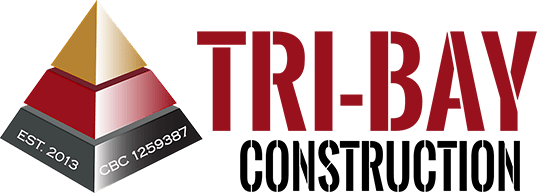Is doing the right thing the same as going the extra mile? Many construction companies pride themselves on “doing the right thing” during construction. Tri-Bay Construction will go the extra mile from beginning to end. We take experiences from previous projects where we’ve worked with suppliers and subcontractors and evaluate for continuous ongoing improvement.
We take into account all the pieces that go into a project, such as:
Cleaning up after a specific operation is the standard operating procedure for most construction companies. Enhanced preparation before the project to minimize clean-up and operate more efficiently and safely is what we do.
This small amount of extra time beforehand results in a better, more efficient operation, less chance for collateral damage, and most importantly, a safer work environment. Best of all, it reduces costs in the long run by eliminating repairs and doing things a second and third time.
When you demand this type of preparation and efficiency, subcontractors want to work on our projects and leave owners knowing without question that we value them and their project. This approach results in a more collaborative and cohesive team effort on every project we do.
There is typically a warranty period of one year following the completion of your project.
The seemingly minor extra efforts, inclusiveness of field workers in daily operations and decisions, and collaborative teamwork between all trades set us apart from many typical construction companies.
You should be asking questions like:
By focusing on details from the start (pre-construction), changes become less frequent and less costly. Identifying challenges or gaps early on can make a project smoother in the construction process.
Getting it right the first time saves time and money for all involved. One glitch or hiccup has a trickle-down effect that can quickly snowball into significant delays.
Transparency between all parties allows for last-minute adjustments that have a less negligible impact on the overall project. There cannot be any “islands” on a construction project. Every component will affect other parts of the project.



